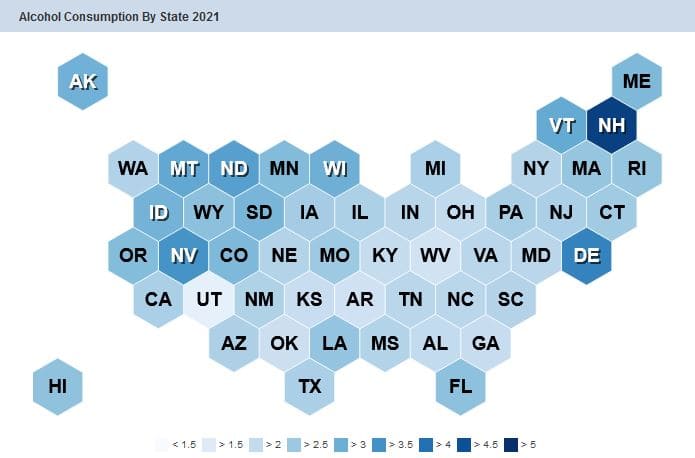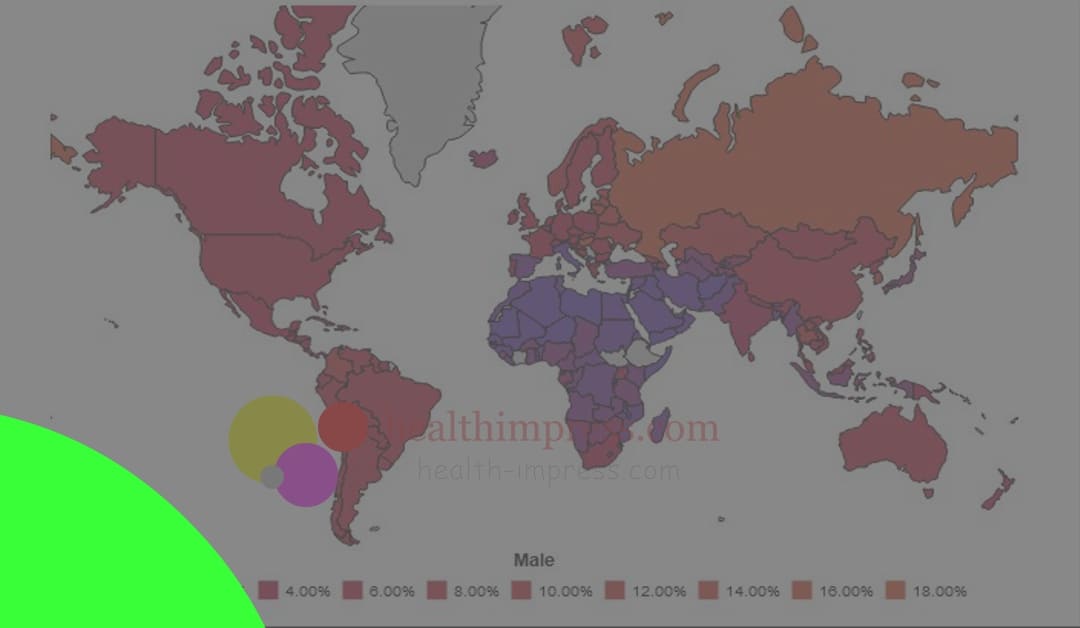Addiction
How to Reduce Alcohol Consumption
I believe the question as to how to reduce alcohol consumption is one that is asked too often. Some of us also ask what are the tips on how to maintain our health, how do I reduce alcohol consumption, what are the tips on how to stop alcohol abuse, and many more.
Irrespective of how your query is, so far as you are tired of seeing how your performance has been dropping, or tired of waking up with a hangover, or tired of spending so much money on alcohol all the time and the associated beer belly grow, then read on.
Alcohol has become the great comforter of many nations and their people. In times of despair, grief, fear of professional and personal failure, when we are excluded, lack of recognition, most people turn to alcohol to contain the pain.
Millions of thousands of people think this way and slide deeper and deeper into mental and physical decline. Without mincing words, alcohol is not a comforter, but a very bad enemy. It destroys homes, it weakens our strength, it destroys the future of so many, our health is affected, as well as our feelings and minds.
There are those who try to be defensive all about it. They will say it’s different for me, it’s just a little gulp now and then, I don’t take it on regular basis but just once in a blue moon, that can’t really hurt. The truth is, alcohol can hurt badly. It actually stings, and tremendously.
Mechthild Dyckmans, the drug commissioner of Germany has said that within three years the number of young people between 12 and 17 years, who get drunk at least once a month has risen from 20 to 26 percent. Worldwide, alcohol is the third highest risk of illness after tobacco consumption and high blood pressure, and premature death. According to the Epidemiological Addiction Survey, 1.3 million people in Germany are dependent on alcohol, and 9.5 million have risky alcohol consumption.
Even if you don’t fit into this addictive behavior, it is advisable to be cautious with alcohol consumption. Yes, we are aware that, to some, there is this occasional tendency to take a sip, and this is why it’s important to know the behavior and protective measures to stay safe.
Those with alcohol use disorder may have problems controlling their drinking, because they drink alcohol even when it’s problematic, or experience withdrawal symptoms when they stop consuming alcohol. Alcohol consumption also varies significantly between countries.
What is Alcoholism?
Alcoholism, also known as alcohol use disorder, is a chronic disease marked by uncontrollable drinking as a result of physical and emotional reliance on alcohol, as well as a fixation with it. Alcohol use disorder patients may have difficulty managing their drinking, consume alcohol even when it is harmful, or experience withdrawal symptoms when they quit drinking.
Alcoholism treatment includes drugs, counseling, and, in some cases, medical detoxification to assist the person stop drinking safely or reduce alcohol consumption.
Some Statistics and why to reduce alcohol consumption
The World Population Review has stated that alcoholism is a widespread condition that affects over 3 million people each year and that the average American consumes 8.7 liters of pure alcohol per year, which is equivalent to 29.0 handles of vodka each year. Consumption, on the other hand, differs by state, hence the need to reduce alcohol consumption.

Americans consume an average of 8.7 liters of pure alcohol per capita annually, the equivalent of 29.0 liters of vodka per person per year. Alcoholism is a chronic disease characterized by uncontrolled drinking due to physical and emotional dependence and a preoccupation with alcohol.
Alcohol usage varies a lot from country to country. The most recent data on alcoholism rates in each country comes from 2004 when the percentage of males and females aged 15 and up who have alcohol use disorders was collected.
The World Population Review states among many other things that with 16.29 percent of males and 2.58 percent of females having an alcohol use disorder, Russia has the highest overall prevalence of alcohol use disorders and that alcohol consumption problem affects 5.48 percent of men and 1.92 percent of women in the United States.
Alcohol use disorder in women worldwide
| Index | Country | Rate |
|---|---|---|
| 1 | Australia | 2.61% |
| 2 | Russia | 2.58% |
| 3 | Norway | 2.55% |
| 4 | Columbia | 2.55% |
| 5 | Hungary | 2.27% |
| 6 | Sweden | 2.27% |
| 7 | New Zealand | 2.20% |
| 8 | Moldova | 2.15% |
| 9 | Lithuania | 1.98% |
| 10 | United States | 1.92% |
| Index | Country | Rate |
|---|---|---|
| 1 | Russia | 16.29% |
| 2 | Hungary | 15.29% |
| 3 | Lithuania | 13.35% |
| 4 | South Korea | 13.10% |
| 5 | Latvia | 11.54% |
| 6 | Belarus | 11.43% |
| 7 | Estonia | 11.09% |
| 8 | Niue | 10.58% |
| 9 | Colombia | 10.33% |
| 10 | Thailand | 10.18% |
Worldwide, the countries with the heaviest alcohol drinkers are:
How to reduce alcohol consumption
It is advisable to take fresh artichoke juice for a 3-week period. You are to drink very little water during this period. Advisably, the juice should be taken 3 times a day, at 2 tablespoons per intake The good thing about this is that the active ingredient cynarin does not only give the liver the strength to break down alcohol better and more quickly, but it can also rebuild damaged liver cells and make them fully functional.
Eating a lot of Zinc foods is recommended if you want to reduce alcohol consumption. Zinc can be found in walnuts, lobsters, eels, oatmeal, chicken hearts, dried lentils, liver, and egg yolk.
You can also do a 3-week cure with milk thistle tea several times a year. You can get this from most pharmacies. Advisably, you are to drink 3 to 4 cups of unsweetened lukewarm milk thistle tea throughout the day. This is how it is prepared: 1 teaspoon of crushed dried milk thistle herb is poured over 1 cup of boiling water, let steep for 8 minutes, and strain.
A perfect liver regeneration cure can also be done with the classic bread drink. The bread acid bacteria in the bread drink is a particularly active and strong group of lactic acid bacteria, so to speak, quickly transport the alcohol out of the liver and make it strong.
You should also incorporate Magnesium into your diet. Foods such as cashew nuts, pumpkin seeds, almonds, hazelnuts, beans and peas, peanuts, walnuts, whole grain products, spinach, lentils, soy products, sea fish, crabs, bananas, beef and pork, boiled ham, jacket potatoes, and tomatoes are a great combination of Magnesium giving foods.
However, you also have to know what goes on in the human body when alcohol is consumed: This is where a lot of minerals and trace elements are consumed and pushed out of the cells. It is therefore very important that all those who regularly drink alcohol also regularly replenish the loss of vital substances.
Further steps to reduce alcohol consumption
The first step would be recognizing that you need help and actually seeking it. Let those around you know what you think and ask them to be of help in any good way they can. This means telling family members and friends you want to get healthier. This social approach can help normalize the change you’re trying to make
Measure your drinks. The first step is to understand how much you’re actually drinking. It should be noted that a regular glass of wine has roughly 12 percent alcohol and weighs 5 ounces. A shot of distilled spirits, such as vodka, is 1.5 ounces and 40% alcohol. According to the NIAAA, a 12-ounce can of beer contains around 5% alcohol, whereas a normal glass of sherry is 3 to 4 ounces and contains about 17% alcohol.
Remove alcohol from your house. You would have to do a house cleaning to get rid of any alcohol in your home. Fridges, wine cellars, and cupboards should be gotten rid of such drinks.
Try and refrain from people that lead you to indulge in drinking in an effort to reduce alcohol consumption. Spots, where they sell alcohol, should be out of bounds for you. All forms of triggers should be avoided. Keep an eye out for peer pressure. Practice saying no in a respectful manner. You are not forced to drink just because others are, and you should not take every drink handed to you. People that encourage you to drink should be avoided.
If you still want to drink some alcohol, although not advisable if you want to reduce alcohol consumption, take smaller portions at a time and do not binge drink.
Many people have been successful by incorporating into their daily schedules sports and other activities to reduce alcohol consumption. That takes their minds off alcohol. Activities such as hobbies and being around people who do not drink have been known to work wonders. With sports, after exercising, you do not have to raise your fluid level with beer, but with mineral water or fruit juice such as orange or apple. Keep yourself occupied. Take a walk, participate in sports, eat out, or see a movie. Pick up a new activity or return to an old one when you’re at home. Painting, playing board games, learning a musical instrument, and walking are all excellent alternatives to drinking.
You’re not to drink to feel full in the stomach if you want to reduce alcohol consumption. In this instance, sipping is the best option to reach your goal. Take it slowly. Sip your beverage. After you’ve had an alcoholic beverage, drink some soda, water, or juice. Never consume alcohol on an empty stomach. Before and after each drink, eat something. Because food absorbs the alcohol in beverages, eating before or even during drinking might reduce the effect and make you want to drink less.
You would be better off if every glass of alcohol you enjoy is followed by a glass of mineral water. This will help reduce alcohol consumption. Also, drink water. When you’re truly thirsty, you could reach for the alcohol. Before you drink, have a cup of relaxing tea or a long glass of water. You may not feel the need for as much, or any alcohol once your thirst has been satiated.
Instead of celebrating success with alcohol, you will have to find alternatives such as non-alcoholic beverages that also fit such occasions.
Track your intake to reduce alcohol consumption. Once you have a sense of how much you are drinking, it is helpful to track how many drinks you are having per day. You could use your phone, a journal, a calendar, or any tracking app.
You need a plan. People who set daily drink limits consume 10% fewer drinks each week than those who don’t, according to data from 10,000 U.S. And beginning the week well is an indicator of success. Members who stay under their planned limit on Monday and Tuesday are nearly four times more likely to reach their goal for the week. You are advised to start easy.
Instead of aiming for complete abstinence, for instance, you can aim to drink fewer than seven days a week. Keep a journal of your drinking habits. Keep track of every drink you have for three to four weeks. Include details on what you drank, how much you drank, and where you were. When you compare this to your goal, you’ll see how far you’ve come. Talk to your doctor or another health expert if you’re having problems keeping to your goal.
Make an effort to exercise. If you use alcohol to cope with anxiety, consider exercising as a healthier alternative. We know that physical movement, particularly outside, can be highly useful in lowering anxiety and coping with other bad moods for those who have access to, and like outdoor activities, and other physical activity possibilities.
Try a month of total abstinence. This has been successful in the UK, and you can also try it. You have to try doing a ‘dry’ month like Dry October, go dry for January or Sober April. Dry January, a campaign to reduce alcohol consumption coordinated by Alcohol Change UK, reportedly drew more than 6 million participants in January 2020.
According to follow-up research, most people drank in healthier amounts later. Schedule no-alcohol days. Make a weekly decision to skip a day or two of drinking. You might want to try going without alcohol for a week or a month to see how you feel physically and mentally. Taking a vacation from alcohol can help you cut down on your drinking.
Keep an eye out for temptation. Avoid people and settings that make you feel compelled to drink. If you associate drinking with certain occasions, such as holidays or vacations, make a strategy for dealing with them ahead of time. Keep an eye on your emotions. You may be tempted to reach for a drink when you’re anxious, lonely, or furious. Attempt to develop new, healthy stress coping mechanisms.
Avoid being alone. Make a conscious attempt to connect with others if you drink to relieve the ache of loneliness. Members of Alcoholics Anonymous are advised not to become overly hungry, angry, lonely, or exhausted, as these emotions can make you more prone to the need to drink. Find ways to connect socially with friends and engage in activities that are cognitively and emotionally fulfilling and enjoyable. Make a request for help. It’s not always easy to cut back on your drinking. Make it clear to your friends and family that you require their assistance. A doctor, counselor, or therapist may be able to assist you.
It’s important to learn how to say no. Prepare yourself for those occasions when you will be offered a drink. Find phrases to help you politely yet firmly decline. “Thanks, but no thanks” is a straightforward remark. The NIAAA recommends holding on to a nonalcoholic drink, asking a friend to support you in uncomfortable situations, or just exiting early if temptation becomes too overwhelming.
Get useful online support. You don’t have to leave your house to find individuals who understand and respect what you’re trying to do. Search for help on the internet. on social media groups for recovering alcoholics, etc.
Return to your plan if you falter. Don’t succumb to feelings of shame and remorse. Simply resume your strategy. Success is largely determined by how you handle setbacks and other obstacles. If a person’s plan to drink less fails, it’s critical to recognize and reflect on the lessons learned, as well as take at least one next correct step to start making a difference.
Make a drinking target for yourself. Set a limit on the amount of alcohol you will consume. Drinking should be limited to one standard drink per day for women and men 65 and older, and two standard drinks per day for men younger than 65. For those with specific medical issues or for some elderly adults, these limitations may be too high. Your doctor can assist you in deciding what is best for you.
Don’t give up. The majority of persons who successfully reduce or stop drinking do so after multiple efforts. Setbacks are inevitable, but don’t let them deter you from achieving your long-term goal. Because the process normally necessitates continual work, there is no definitive endpoint.
Benefits of cutting down on alcohol consumption
There are both immediate and long-term benefits when you reduce alcohol consumption. Some of the immediate effects of cutting down on alcohol consumption include:
- Your mood changes, especially in the morning because you start feeling better in the mornings
- The British NHS has stated that cutting down on alcohol consumption gives a better looking skin
- One also begins, in a short period of time, to feel more energetic
- It also aids in a better weight management regime
- Cutting down on alcohol consumptions lets one feel tired during the day
Long-term drawbacks, on the other hand, include:
Behavior
Drinking has the potential to impair your judgment and behavior. When you’re drunk, you may act erratically or aggressively. For habitual heavy drinkers, memory loss can be an issue both during and after drinking.
Mood
Heavy drinking has been linked to depression, and hangovers can make you feel nervous and depressed. If you’re already nervous or depressed, drinking might make things worse, so cutting back may help you feel better overall.
Heart
Drinking heavily for a long time can cause your heart to expand. This is a dangerous condition that cannot be totally reversed, although it can be slowed down by not drinking.
Sleep
Drinking alcohol might make it difficult to sleep. It can help some individuals fall asleep fast, but it can also alter sleep patterns and prevent you from sleeping soundly. As a result, reducing your alcohol consumption should make you feel more rested when you wake up.
The immune system is the body’s defense mechanism
Drinking on a regular basis can impair your body’s ability to fight illnesses. Heavy drinkers are more likely to contract infectious illnesses.
Takeaways
We are to be very careful if we have alcohol problems, or anyone around us is in the same predicament. All in all, the advice would be to give a helping hand, when one needs it, or seek help if we are in a similar situation.
One of such help is to click on the Sobriety Success image or HERE for help



